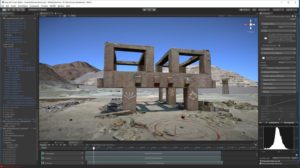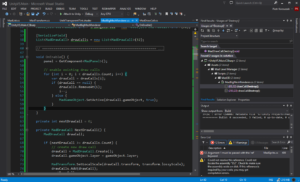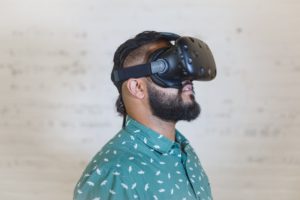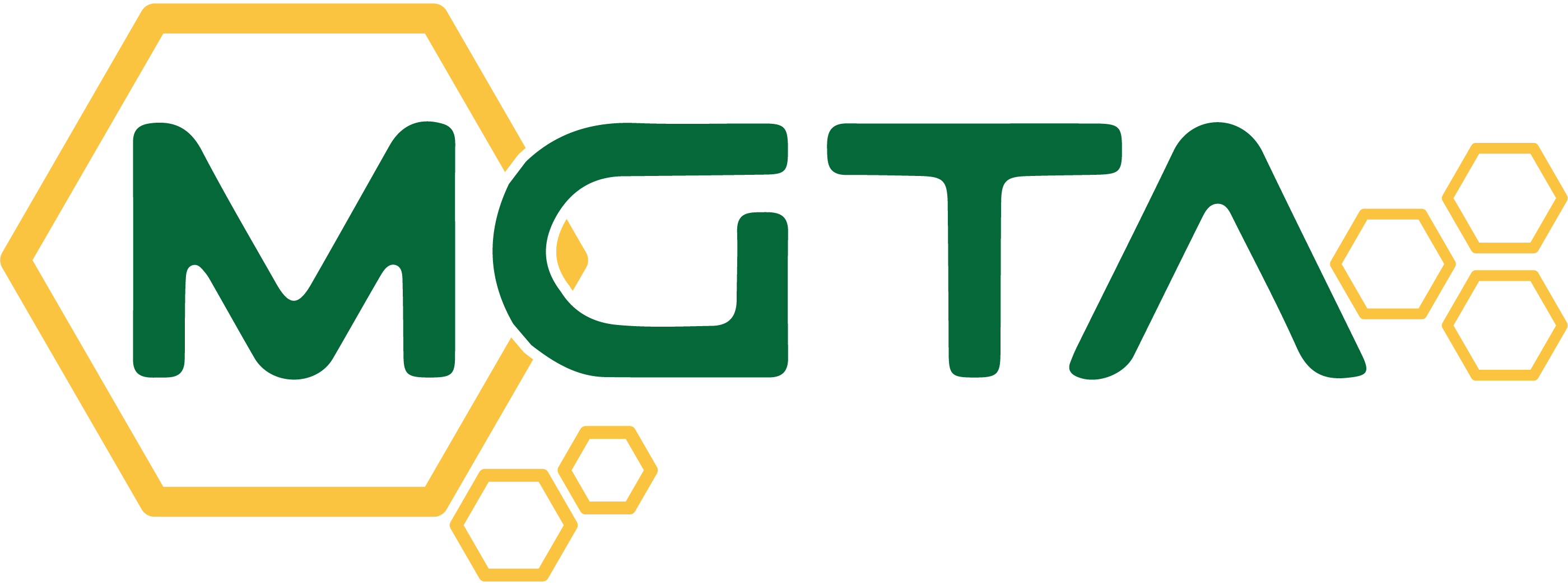
MGTA Teacher Training Program
For Middle School & High School Teachers
This program provides a series of teacher training courses for computer game design and STEM education. Middle and High School teachers will work with Mason Game Design faculty and Instructors to learn the latest software, engines, and tools, and how they can be applied in the classroom.
Location: George Mason University, Fairfax & Prince William (SciTech) Campus
For customized group scheduling options and pricing, please contact Josh Emswiller at jemswill@gmu.edu
Courses Available Now
Game Design with Unity
Game Design with Unity
 In this course, middle and high school teachers will work with George Mason game design instructors to learn the latest game design software, and how this software is effectively introduced to students. This course is a comprehensive introduction to Unity 2D and 3D game development that teaches the foundational principles of the software, from basic workflow to C# scripting. Through hands-on tutorials, teachers will learn Unity in the same scaffolded manner that they will be taking back to their classrooms. Teachers will be able to earn 3.0 continuing education units for this course.
In this course, middle and high school teachers will work with George Mason game design instructors to learn the latest game design software, and how this software is effectively introduced to students. This course is a comprehensive introduction to Unity 2D and 3D game development that teaches the foundational principles of the software, from basic workflow to C# scripting. Through hands-on tutorials, teachers will learn Unity in the same scaffolded manner that they will be taking back to their classrooms. Teachers will be able to earn 3.0 continuing education units for this course.
To apply for CEU, fill out this form and submit it to execed.gmu.edu.
Note on Unity: For anyone that wants to download the software on their own computers for educational use, the personal version is free. For anyone who wants to use it in a classroom with computers owned by a school or university, they will need to obtain the academic version. The academic version is free of charge, Unity simply requires that your school apply for a grant annually at the link here. Generally, Unity just needs to verify that your school is an accredited not-for-profit institution.
Tuition: $585
Follow-On and Specialized Courses
3D Game Design
3D Game Design I
 Teachers will learn the fundamentals of game design, rules, and game mechanics, and will be encouraged to work in an interactive environment with other teachers. You will build on your own game ideas, for games that could be used in the classroom and beyond. The class will also provide an insider’s look at the computer game design industry, with hands-on experience using current game engine tools, including Unity and 3D studio Max. You will learn to design complex levels and worlds, learn the basics of programming for games, and learn innovative game play scenarios. You’ll build original terrain, customize character skins, create lighting and shadows effects.
Teachers will learn the fundamentals of game design, rules, and game mechanics, and will be encouraged to work in an interactive environment with other teachers. You will build on your own game ideas, for games that could be used in the classroom and beyond. The class will also provide an insider’s look at the computer game design industry, with hands-on experience using current game engine tools, including Unity and 3D studio Max. You will learn to design complex levels and worlds, learn the basics of programming for games, and learn innovative game play scenarios. You’ll build original terrain, customize character skins, create lighting and shadows effects.
3D Game Design II
 The curriculum for this course combines intermediate and advanced design and technology instruction using the Unity game engines to create complex interactive 3D immersive game environments. Expand on the topics of function uses, Unity C# integration, and intermediate programming. This course has a large focus on being resourceful with creating games, both alone and in a team. You will need introductory programming experience in C#, C++, or Java for this course, if you do not attend the prior week’s session.
The curriculum for this course combines intermediate and advanced design and technology instruction using the Unity game engines to create complex interactive 3D immersive game environments. Expand on the topics of function uses, Unity C# integration, and intermediate programming. This course has a large focus on being resourceful with creating games, both alone and in a team. You will need introductory programming experience in C#, C++, or Java for this course, if you do not attend the prior week’s session.
Teachers will also explore the business side of games: forming your own game company, exploring the business markets for the computer game industry, and investigating ways to publish and market games. Teachers will learn how to guide their students in the various roles professional roles within the game design industry: producer, programmer, designer, and artist.
Game Design Fundamentals
Game Design Fundamentals
 In this course, middle and high school teachers will work with Mason game design instructors to learn the latest game design software, engines, and tools, and how they can be applied in the classroom. This course teches teachers to use Adobe Photoshop for digital painting and texture art, Autodesk 3DS max for 3d modeling and animation, and Unity for 2d & 3d game development.
In this course, middle and high school teachers will work with Mason game design instructors to learn the latest game design software, engines, and tools, and how they can be applied in the classroom. This course teches teachers to use Adobe Photoshop for digital painting and texture art, Autodesk 3DS max for 3d modeling and animation, and Unity for 2d & 3d game development.
This course will also cover the importance of gameplay and story, roles within the game industry, and the game development process.
Teachers will be able to earn continuing education credit for this course.
Tuition: $550
Time: 9AM – 4PM Daily
Both On-site and Virtual Options
On-site location:
Virginia Serious Games Institute
10900 University Blvd., Bull Run Hall Suite 147
Manassas, VA, 20110
C# Game Programming
C# Game Programming
 This course will cover the fundamentals of C# programming. It will be taught in conjunction with the Unity Game Engine, as visual examples in Unity allow for an increased understanding of how the code behaves and can be manipulated in practice. To reinforce learned material, small games or “Micro Games” will be created to explore new material. This course will cover Data Types and Structures, Control Structures, Data Arrays and Uses, Functions, Classes, Unity C# integration and programming, and the Basics of compilers. After completion of the course, teachers will be able to make simple and complex games or software programs using C# programming language, and they will learn the terminology needed to further develop their knowledge on their own.
This course will cover the fundamentals of C# programming. It will be taught in conjunction with the Unity Game Engine, as visual examples in Unity allow for an increased understanding of how the code behaves and can be manipulated in practice. To reinforce learned material, small games or “Micro Games” will be created to explore new material. This course will cover Data Types and Structures, Control Structures, Data Arrays and Uses, Functions, Classes, Unity C# integration and programming, and the Basics of compilers. After completion of the course, teachers will be able to make simple and complex games or software programs using C# programming language, and they will learn the terminology needed to further develop their knowledge on their own.
Art and Animation
Art & Animation I
![]() Teachers will learn the foundations of digital arts, modeling, and animation – skills that can be translated into a variety of real-world applications such as game design, architecture, the sciences, medicine, and many other 21st century professions and advanced fields of study. Students will also learn the roles and responsibilities of digital artists, animators, and 3D modelers in the game design industry, and beyond.
Teachers will learn the foundations of digital arts, modeling, and animation – skills that can be translated into a variety of real-world applications such as game design, architecture, the sciences, medicine, and many other 21st century professions and advanced fields of study. Students will also learn the roles and responsibilities of digital artists, animators, and 3D modelers in the game design industry, and beyond.
The art and animation industry has grown exponentially in the past thirty years. In this course, teachers will learn the basics of concept art, 2D and 3D design, modeling, and animation for games. You will also learn the fundamentals of creating efficient game-ready assets, and the basics of integrating models into the Unity 3D game engine. You will also be introduced to texturing basics, UVing, rigging, and the principles of animation. This course is a prerequisite for Art & Animation Track Week 2.
Art & Animation II
 In part 2 of this course, teachers will build on their knowledge of the tools and techniques used in making 2D and 3D game art. You’ll refine your competency in digital painting, modeling, and building game-ready and optimized 3D and textured objects. You will learn about the game development pipelines in general and see how to import models into the Unity game engine, and be able to animate 3D models using transforms, curves, rigging, and biped techniques. You will need a working knowledge of animation techniques, Unity 3D, and 3D Max for this course, if you do not attend the prior week’s session.
In part 2 of this course, teachers will build on their knowledge of the tools and techniques used in making 2D and 3D game art. You’ll refine your competency in digital painting, modeling, and building game-ready and optimized 3D and textured objects. You will learn about the game development pipelines in general and see how to import models into the Unity game engine, and be able to animate 3D models using transforms, curves, rigging, and biped techniques. You will need a working knowledge of animation techniques, Unity 3D, and 3D Max for this course, if you do not attend the prior week’s session.
Mobile App Development
Mobile App Development I
 This course provides an overview and comparison of game design approaches for Apple (iOS) and Google (Android) mobile devices. Teachers learn about the challenges of game development for mobile devices including limited memory, screen sizes, GUI requirements, gesture- based UID, and strengths and limitation of available smart phones and pads/tablets. This course will also introduce mobile app scripting and design skills to develop a functional mobile game at the conclusion of the course. A brief introductory overview of Swift and Xcode and Android Studio will be provided to introduce the basic workflow of mobile OS development as well. Lastly, teachers will learn to port their apps and games from the Unity 3D Engine onto their personal mobile devices, and will be given guidelines about the steps to take in order to publish games.
This course provides an overview and comparison of game design approaches for Apple (iOS) and Google (Android) mobile devices. Teachers learn about the challenges of game development for mobile devices including limited memory, screen sizes, GUI requirements, gesture- based UID, and strengths and limitation of available smart phones and pads/tablets. This course will also introduce mobile app scripting and design skills to develop a functional mobile game at the conclusion of the course. A brief introductory overview of Swift and Xcode and Android Studio will be provided to introduce the basic workflow of mobile OS development as well. Lastly, teachers will learn to port their apps and games from the Unity 3D Engine onto their personal mobile devices, and will be given guidelines about the steps to take in order to publish games.
Mobile App Development II
 This course provides a comprehensive introduction to Swift, which is an innovative programming language for iOS and OSX application development by building on the best of Objective-C and other modern languages. Teachers will also learn how to use Android Studio and the Android Emulator to develop innovative apps and games for Android OS mobile devices. You will build simple apps and deploy them to your own OS devices. Teachers will also learn basics of objective-oriented programming along with logic required to be proficient in coding, a fundamental skill in the 21st century. Also, teachers will examine UX (User Experience) design and explore many possibilities in the field of mobile app design and development. Some familiarity with programming concepts is recommended for this course.
This course provides a comprehensive introduction to Swift, which is an innovative programming language for iOS and OSX application development by building on the best of Objective-C and other modern languages. Teachers will also learn how to use Android Studio and the Android Emulator to develop innovative apps and games for Android OS mobile devices. You will build simple apps and deploy them to your own OS devices. Teachers will also learn basics of objective-oriented programming along with logic required to be proficient in coding, a fundamental skill in the 21st century. Also, teachers will examine UX (User Experience) design and explore many possibilities in the field of mobile app design and development. Some familiarity with programming concepts is recommended for this course.
Mobile and Mixed Reality Game Development
Mobile & Mixed Reality Game Development I
 Get an in-depth look at the game design approaches and challenges for various mobile devices and AR experiences. Learn about mobile app and AR scripting and design skills, as well as effective UI and UX design.
Get an in-depth look at the game design approaches and challenges for various mobile devices and AR experiences. Learn about mobile app and AR scripting and design skills, as well as effective UI and UX design.
This course provides an overview and comparison of game design approaches for Apple (iOS) and Google (Android) mobile devices coupled with new AR game design approaches (Pokemon Go). Teachers learn about the challenges of game development for mobile devices, including limited memory, screen sizes, GUI requirements, gesture- based UID, and strengths and limitation of available smart phones and pads/tablets. This course will also introduce mobile app scripting and design skills to develop a functional mobile game with AR capabilities by the conclusion of the course. A brief introductory overview of Swift and Xcode and Android Studio will be provided to introduce the basic workflow of mobile OS development as well. Lastly, teachers will learn to port their apps and games from the Unity 3D Engine onto their personal mobile devices, tweak their AR feature sets, and will be given guidelines about the next steps to take to publish games.
Mobile & Mixed Reality Game Development II
 This course provides a comprehensive introduction to Swift, which is an innovative programming language for iOS and OSX application development by building on the best of Objective-C and other modern languages. Teachers will also learn how to use Android Studio and the Android Emulator to develop innovative apps and games incorporating AR applications for Android OS mobile devices, and they will build simple AR apps and deploy them to their own OS devices. Teachers will also learn basics of objective-oriented programming along with logic required to be proficient in coding, a fundamental skill in the 21st century. Moreover, teachers will examine UX (User Experience) design and explore many possibilities in the field of mobile app design and AR development. Some familiarity with programming concepts is recommended for this course.
This course provides a comprehensive introduction to Swift, which is an innovative programming language for iOS and OSX application development by building on the best of Objective-C and other modern languages. Teachers will also learn how to use Android Studio and the Android Emulator to develop innovative apps and games incorporating AR applications for Android OS mobile devices, and they will build simple AR apps and deploy them to their own OS devices. Teachers will also learn basics of objective-oriented programming along with logic required to be proficient in coding, a fundamental skill in the 21st century. Moreover, teachers will examine UX (User Experience) design and explore many possibilities in the field of mobile app design and AR development. Some familiarity with programming concepts is recommended for this course.
Machine Learning and Artificial Intelligence for Teachers
Machine Learning and Artificial Intelligence for Teachers
 The application of Machine-Learning models has been deemed the 4th Industrial Revolution, as it has transformed markets and industries across the globe. This course begins by providing an overview of the brief history of Artificial Intelligence (AI), along with course topics including basic human cognitive science, neural networks, an overview of types of machine-learning models, and an introduction to the design and application of deep-learning algorithms.
The application of Machine-Learning models has been deemed the 4th Industrial Revolution, as it has transformed markets and industries across the globe. This course begins by providing an overview of the brief history of Artificial Intelligence (AI), along with course topics including basic human cognitive science, neural networks, an overview of types of machine-learning models, and an introduction to the design and application of deep-learning algorithms.
This course will also discuss and demonstrate Deep Academic Learning Intelligence (DALI), one of the teacher’s inventions that applies machine-learning models to teaching & learning. Students will be able to customize DALI variables and train their own machine-learning models to provide example AI-driven student academic advising and counseling advice.
